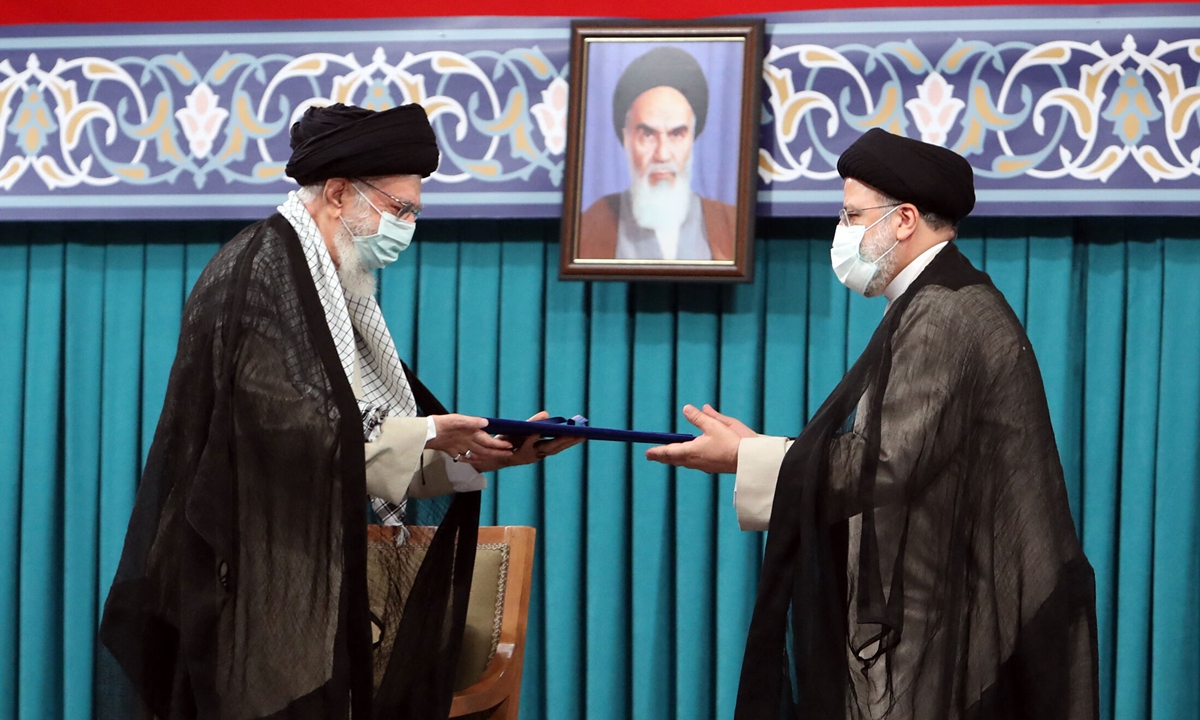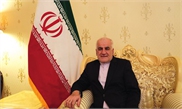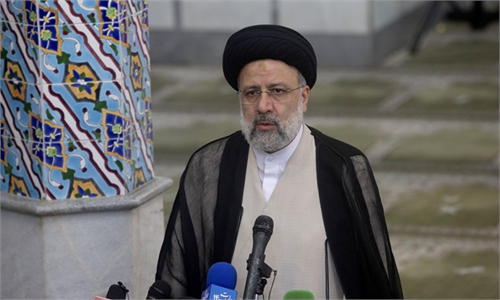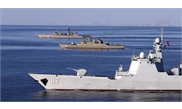
A handout picture provided by the office of Iran's Supreme Leader Ayatollah Ali Khamenei on Tuesday, shows him (left) during the inauguration ceremony for Ebrahim Raisi as President, in Khamenei's office in the capital Tehran. Raisi was inaugurated as president of Iran, a country whose hopes of shaking off a dire economic crisis hinge on reviving a nuclear deal with world powers. Photo: AFP
Iran's parliament on Wednesday approved almost all new President Ebrahim Raisi's cabinet choices, enabling him to start working in earnest with his government, following a June election victory.Lawmakers approved one-by-one 18 out of 19 candidates put forward by Raisi for the ministerial posts.
They rejected only his pick for the education portfolio, thus requiring the president to make another choice for that post.
In an Islamic republic where ultimate power rests with supreme leader Ayatollah Ali Khamenei, Raisi inherits a difficult socioeconomic situation.
Iran has been strangled financially by sanctions reimposed by Washington after then US president Donald Trump pulled out of a multilateral nuclear deal in 2018.
The country of 83 million people has since been hit by a severe economic crisis amplified by the COVID-19 pandemic.
Iran is currently grappling with a fifth wave of infections - the strongest wave yet.
The country recorded its highest single day death toll on Tuesday, with 709 fatalities registered by the health ministry in 24 hours.
Raisi won a June 18 election marred by record low turnout and an absence of significant competitors.
He succeeds moderate president Hassan Rouhani, architect of the political opening that culminated in the 2015 nuclear agreement between Tehran and major powers. But that external opening was torpedoed by Trump and much of Iran's conservative camp.
The new president was sworn in by parliament in early August, but the outgoing administration remained at the helm until Wednesday's parliamentary vote.
The president announced on Saturday that his government's first priority will be the battle against coronavirus, closely followed by the economy.
Western powers, Russia and China are all keeping a watchful eye for any sign of willingness by Iran to resume discussions that began in Vienna in April aimed at salvaging the 2015 nuclear deal.
AFP



